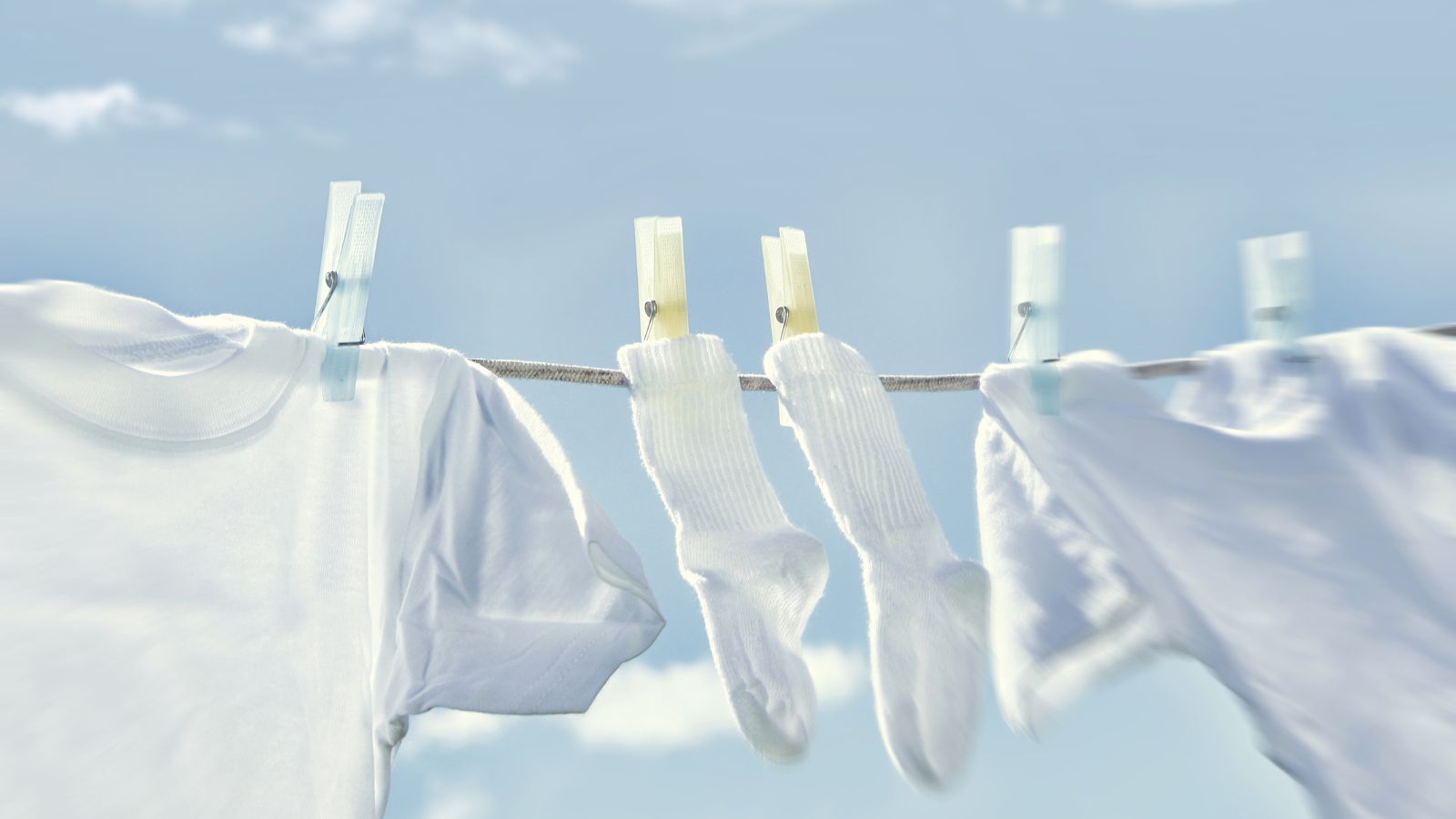
When it comes to drying laundry, many of us toss it in the tumble dryer and call it a day, especially in the depths of winter when it is cold and blustery outside.
However, on the right day, drying laundry outside when exploring how to do laundry in winter, might not be too bad of an idea – although, as with anything, it comes with its pros and cons.
Here, experts weigh in on the benefits of air-drying laundry outside in winter, helping you to make the right decision for your clothes and linens.
Can you dry laundry outside in winter?
While there are some reasons you should not dry laundry outside in winter, the right climate could make it the superior option to extend the lifespan of your garments and save energy when doing laundry.
Here's how the experts look at this conundrum.
The pros of drying laundry outside in winter
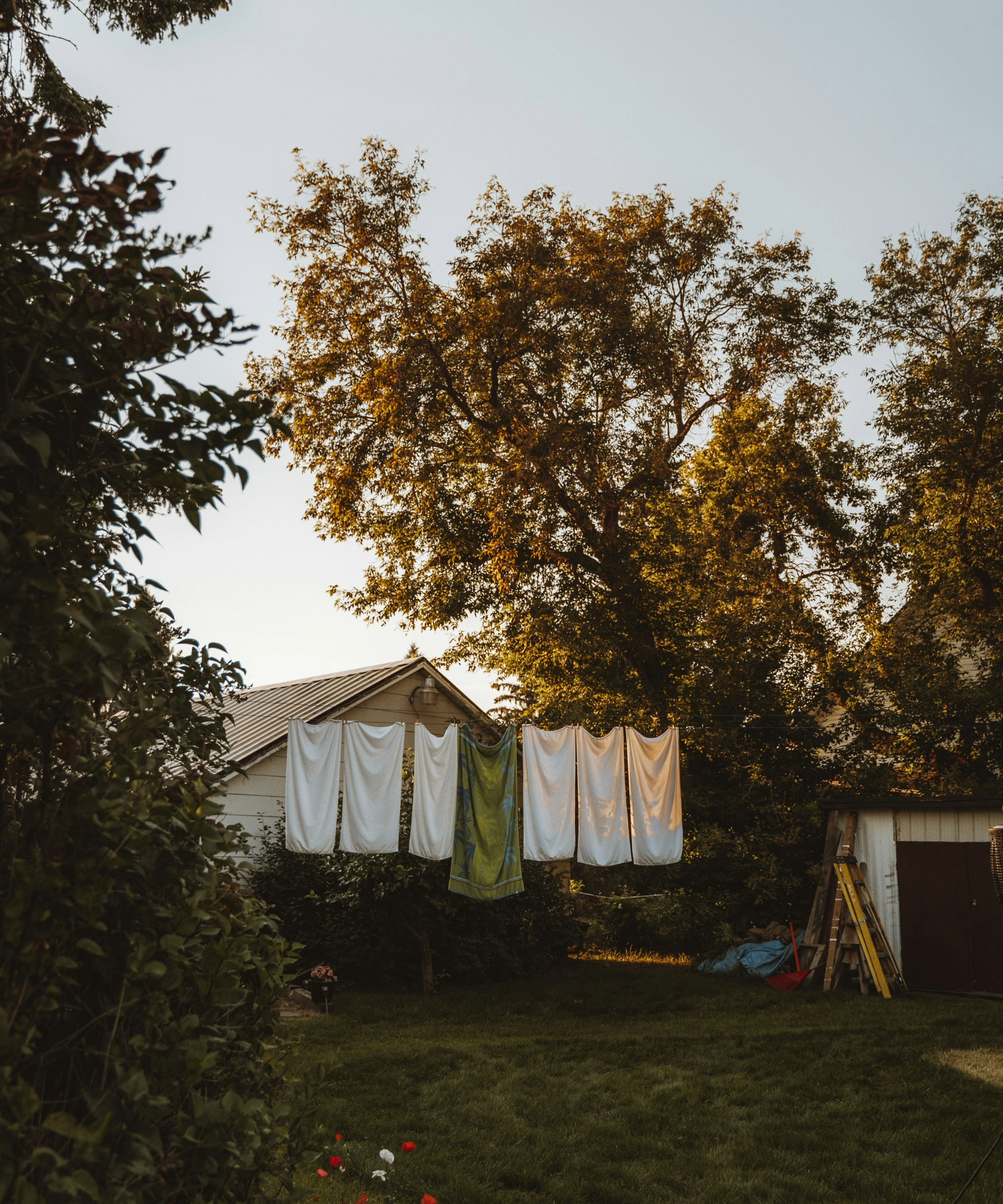
Generally speaking, there are four main benefits to drying clothes outside when doing laundry in winter, so long as the weather is bright, sunny, and windy – even if it is cold.
Ken Doty, cleaning expert and COO at The Maids explains, 'The most important factors are sunlight, wind, and humidity. Sunlight is the main resource for drying clothing, as the sun's rays evaporate the water. It can even offer disinfection while being 100% environmentally friendly. Wind plays an incredibly important role in drying your clothes by sending humid air that helps evaporate leftover water. The wind is the reason that it is possible to dry clothing as the power of wind can overcome even freezing or below-freezing temperatures. As long as there is no snow or rain, the wind will power your clothes to dry.'
It saves money. Bills are often at their highest in winter as we turn up the heating, spend more time indoors, and use our lighting for longer. Any way we can save money at home is a win.
Ken Doty, a cleaning expert adds, 'It is certainly possible for you to dry clothes outside in the winter. Staying away from energy-sucking dryers will help reduce electricity costs. It is a great eco-conscious and wallet-friendly method to dry clothing without using your dryer.'
It helps your clothes last longer. One of the main benefits of drying clothes without a tumble dryer is prolonging the lifespan of your clothes. Phillip Twigg, appliance expert at Reliant Direct says, 'It's also much safer, especially when it comes to delicate fabrics that might accidentally be damaged or warped in your dryer.'
This is particularly important in the cooler months when we are more likely to be washing natural materials, such as wool, so you don't have to work out what to do if you've shrunk clothes in the dryer.
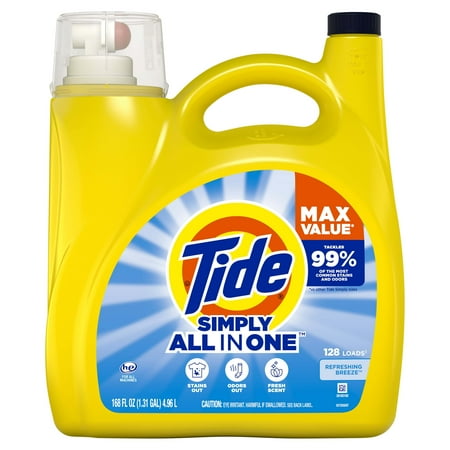
Keep your clothes smelling fresh when drying outside in winter by using an odor eliminating detergent with a fresh fragrance. Tide is specially formulated to work on lower wash temperatures and in high efficiency machines, too, so you can make further savings on your laundry cycle.
It keeps them wrinkle-free and fresh. Drying laundry outside on a line is a simple way to make laundry smell better and unwrinkle clothes without an iron – even in winter, adds Ken Doty, cleaning expert. 'Cold air can provide a crisp and fresh scent to your laundry,' he says.
It prevents damp inside your home. If you are trying to cut back on using a tumble dryer to save money on laundry, drying clothes outside can help to prevent damp inside your home when drying clothes on a drying rack. This can be mitigated by trying a heated airer, or with the best dehumidifier, but the upfront costs can be just as pricy as running your best clothes dryer in the first place.
The cons of drying laundry outside in winter
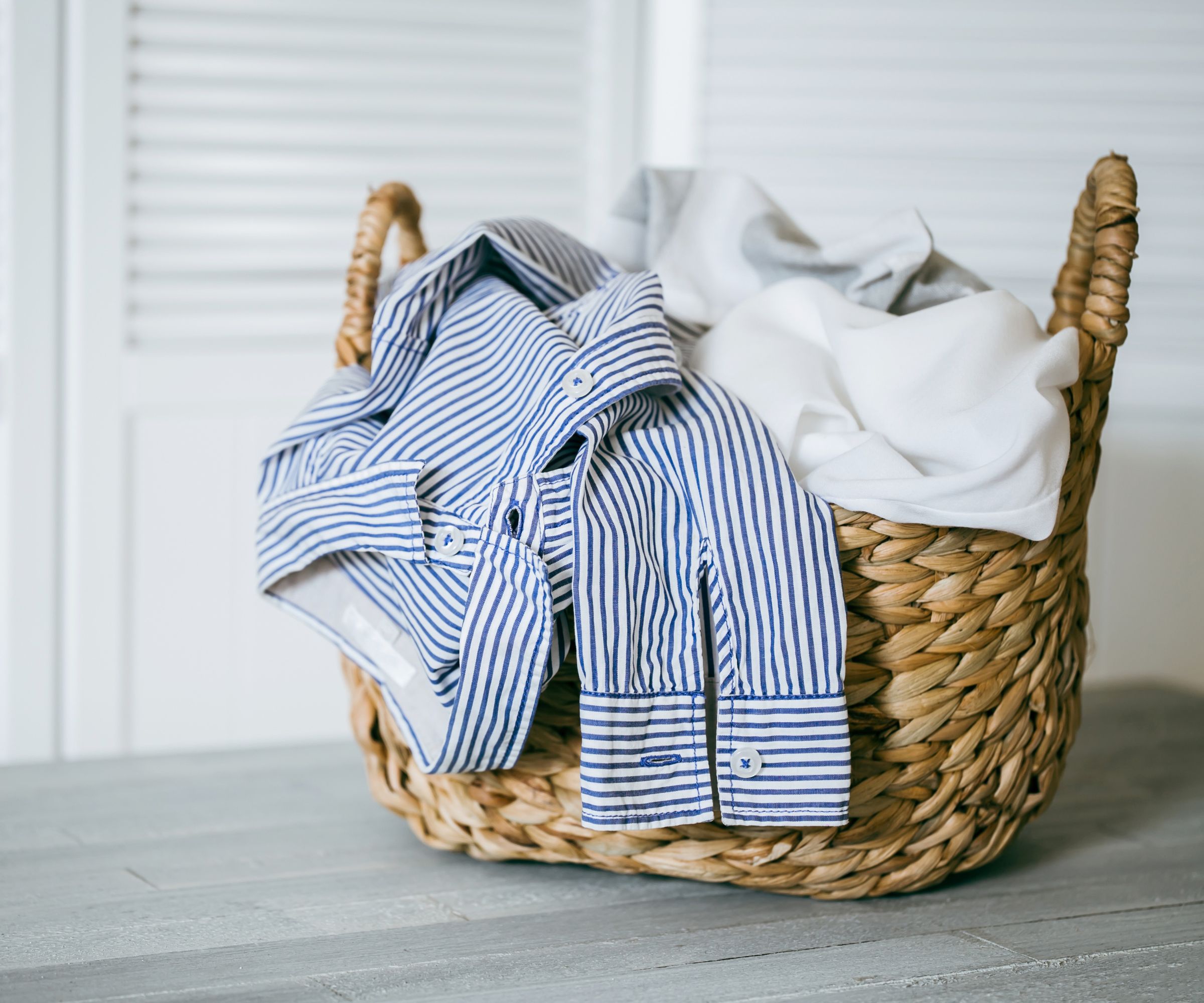
Drying laundry outside in winter is not always easy-breezy, however. There are several considerations to be made before you commit to hanging your laundry up on a line.
Laundry takes longer to dry. If you are looking to dry clothes quickly, line drying in winter is not the method for you says cleaning expert Ken Doty. 'As mentioned, cold temps will slow the evaporation process that wind and sun create. '
While wind can speed up drying times a little, it will not be as effective as on a blustery summer day. The slower drying times can sometimes lead to slightly musty smells, too, so we recommend checking the drying progress every few hours and moving your clothes indoors if they are not dry by the end of the day.
The weather can change quickly. Salvador Villarreal, cleaning expert at VIP Cleaners Delivery says, 'A particular challenge with outdoor drying is the unpredictability of weather. Rapid weather changes might require quick shifts to indoor drying to prevent dampness and mold, something I've seen lead to garment discoloration or a musty smell, especially in fabrics like silk.'
A good laundry tip is to check the weather forecast before hanging clothes outside to dry but remaining close by in case some unexpected rain rolls in.
The placement has to be perfect. In order for your clothes to dry at all outside in winter, they need to be in the direct path of both the wind and the sun, so your line or drying rack needs to be placed perfectly says Ken Doty, cleaning expert. This might make it too awkward to dry clothes outside, especially if you need to move the drying rack around to keep it in the sunlight for as long as possible, especially when drying clothes in a small space.
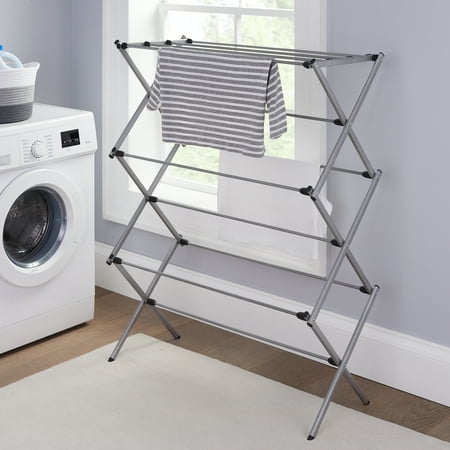
If you still want to avoid using a dryer in winter, but don't want to risk hanging laundry outside, consider using an indoor clothes rack positioned near a sunny window instead. Cracking the window open a little to allow for good ventilation, or positioning the drying rack near a heater will help to speed up the process/
FAQs
What temperature is too cold to dry clothes outside?
So long as the weather is dry, sunny, and breezy, there is technically no minimum temperature that clothes need to dry. However, be aware that the lower the temperature, the longer items will take to dry out. In temperatures below freezing, some items may also freeze and turn stiff before fully drying out.
Because of this, it is wise to hang clothes out when it is no colder than 53 degrees Fahrenheit (12 degrees Celsius) for the best results.
All in all, whether you decide to dry your laundry outside in the winter, or stick to drying clothes indoors, will come down to personal preference, the amount of laundry you have, and how quickly you need it to dry.







